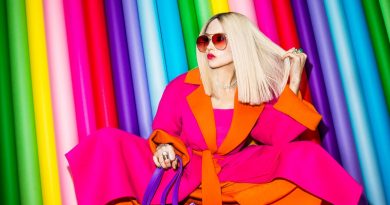Beauty & Wellness Briefing: Is this the year AI foundation matching is perfected?
This week’s briefing covers the tech advances that have been made in digital foundation matching. Today is also the first day of Chinese New Year, which has seen a wave of Year of the Tiger-themed beauty products for the holiday.
If there’s any beauty product that absolutely requires shade matching, it’s foundation. But so far, that’s been the hardest sampling process to replicate digitally.
As AR/AI beauty try-on tech has emerged as an in-demand product tester alternative during the pandemic, foundation remains a technical challenge. Major tech platforms launching digital try-on have long opted to focus on eye, lip and cheek products first. But beauty tech platforms and brands are doubling down on their efforts to get foundation right. Now, some say they have finally perfected it.
On January 6, Charlotte Tilbury Beauty launched a 4.0 version of its online Foundation Finder tool that promises a “perfect match,” offering a money-back guarantee. The tool first takes users through a brief survey, asking them to identify their general skin color range and undertone. It then prompts the user to upload a photo for AI matching.
“Our newest virtual tool Foundation Finder really is a big deal, because foundation was previously difficult to shop online — they said it couldn’t be done. And now, with our new innovation, we’re changing that,” said Corinne Suchy, chief growth and technology officer at Charlotte Tilbury Beauty.
The tech for foundation matching has many complex considerations, including the lighting, shadows and highlights on the face during the matching process, as well as one’s skin undertones.
“Matching color on a camera is ridiculously hard, because of all the different lighting conditions,” said Chris Merkle, CEO and founder of 5-year-old digital foundation-matching startup MIME. As a result, MIME focuses its R&D on different lighting scenarios and undertones.
“We have [to consider] not only complexion, but also the undertone basics of warm, neutral, cool. And now, [we’re able to account for] all of those subtle differences. We were already looking at color signatures in your face, but we can now say, ‘OK, once we normalize the lighting condition, does this person have light skin with redness, for example? Or does this person have more peach or yellow undertones?’”
MIME isn’t the only platform optimistic about foundation matching. At CES this year, Perfect Corp. announced more developments in its foundation-matching tools. The company states that its foundation matcher detects around 90,000 skin tones via a smartphone camera.
“With these AI advancements, all beauty brands can provide customers with a foundation shade custom fit to their individual needs,” said Alice Chang, founder and CEO of Perfect Corp.
The lighting issue has long been a conundrum for brands and retailers offering digital foundation-matching tools. Some, such as Lookfantastic and Boots, offer their customers physical cards to hold up in the photo for white balance accuracy. But those pose logistical difficulties. For example, Lookfantastic allows users to order the card in the mail once they have already bought the foundation or included a foundation sample in their order. Boots, meanwhile, requires a pick-up of the card in a physical store rather than offering an all-online experience.
Apart from AI, brands have been trying a range of digital tools for foundation matching. Some, such as Kosas, have doubled down on sending physical samples. Il Makiage, meanwhile, promises a perfect match based exclusively on its detailed online quiz.
Inclusivity has been another important part of the conversation around digital shade-matching. In August 2021, Sephora announced its plans to relaunch its ColorIQ shade-matching online with AI technology designed to ensure the representation of a diverse range of skin tones. Both The Lip Bar and Fenty Beauty have launched AR try-on for complexion products using Perfect Corp. technology.
“For a long time, a lot of shade finders weren’t that great. We did our best with what technology we had at the time. But right now, it’s building the credibility and trust to know that you can actually buy something color-related online and get a good match,” said Merkle.
Chinese New Year 2022: Tmall and toys for Year of the Tiger
Chinese New Year started February 1, and beauty brands have been rolling out their special-edition Year of the Tiger promotions for the last month.
This year, new product launches, limited-edition gift boxes, Chinese New Year-themed gifts with purchase and digital red envelopes are popular marketing strategies for beauty, said Pablo Mauron, managing partner for China at consultancy Digital Luxury Group. These are especially popular on e-commerce platform Tmall and messaging app WeChat.
“Tmall, one of China’s largest B2C online marketplaces, continues to be the most important online transactional channel for the beauty industry,” he said. WeChat, meanwhile, remains the biggest DTC channel, he added.
Celebrity promotions are also especially important for the China market. This year, L’Oréal launched a Chinese New Year campaign with actress Gong Li and actor Zhu Yilong to target a wide range of age groups.
Other beauty brands are leaning into youth-focused trends. Fresh, for example, collaborated with Chinese toy manufacturer Pop Mart for a WeChat mini-game based on the idea of “blind boxes,” or mystery boxes, as random collectible toys are popular with Gen Z in China. Users can invite friends and receive virtual gifts that are redeemed for physical prizes. Those who purchase the brand’s Chinese New Year products receive a Pop Mart toy in their gift box.
Reading List
Inside our coverage
Moon Juice secures $7 million in funding.
Farfetch to acquire Violet Grey.
Glossier laid off a third of its corporate workforce.
Pacifica Beauty sells a minority stake.
What we’re reading
TikTok’s slugging obsession helped drive Vaseline’s beauty comeback.
Kylie Jenner’s beauty brand is accused of copying Trixie Mattel.
Credo Beauty brings in Aesop’s former president and gm as its new CEO.


:quality(70):focal(3014x2070:3024x2080)/cloudfront-eu-central-1.images.arcpublishing.com/businessoffashion/VJAZ5654H5DGHKV22R2INE3T2I.jpg)


